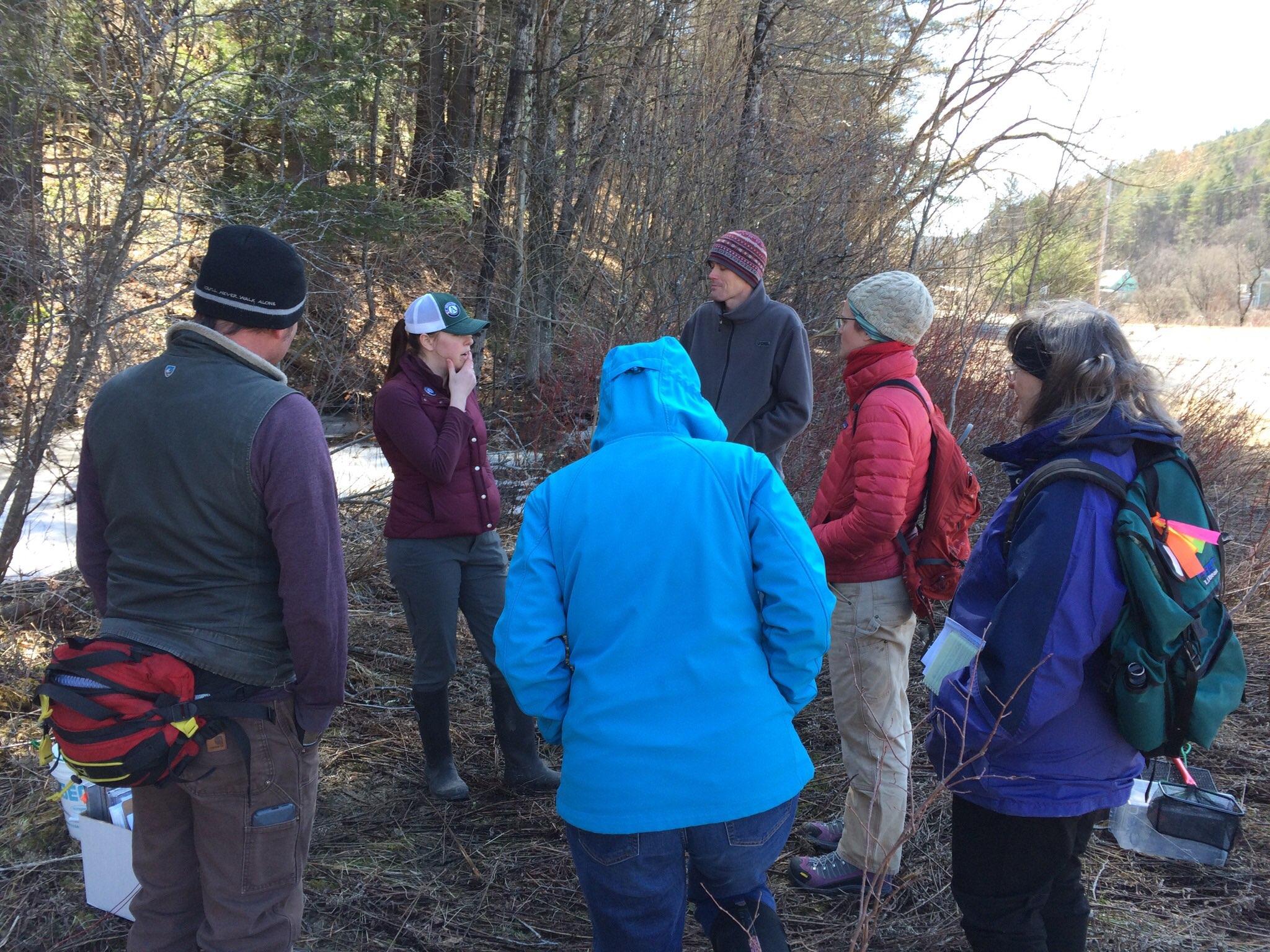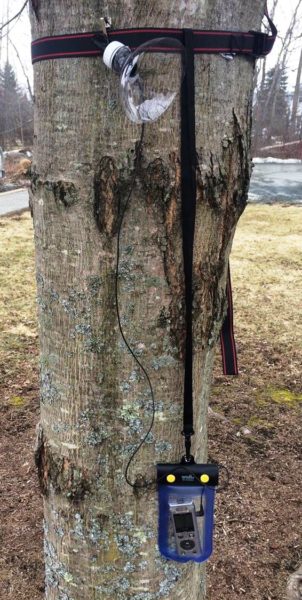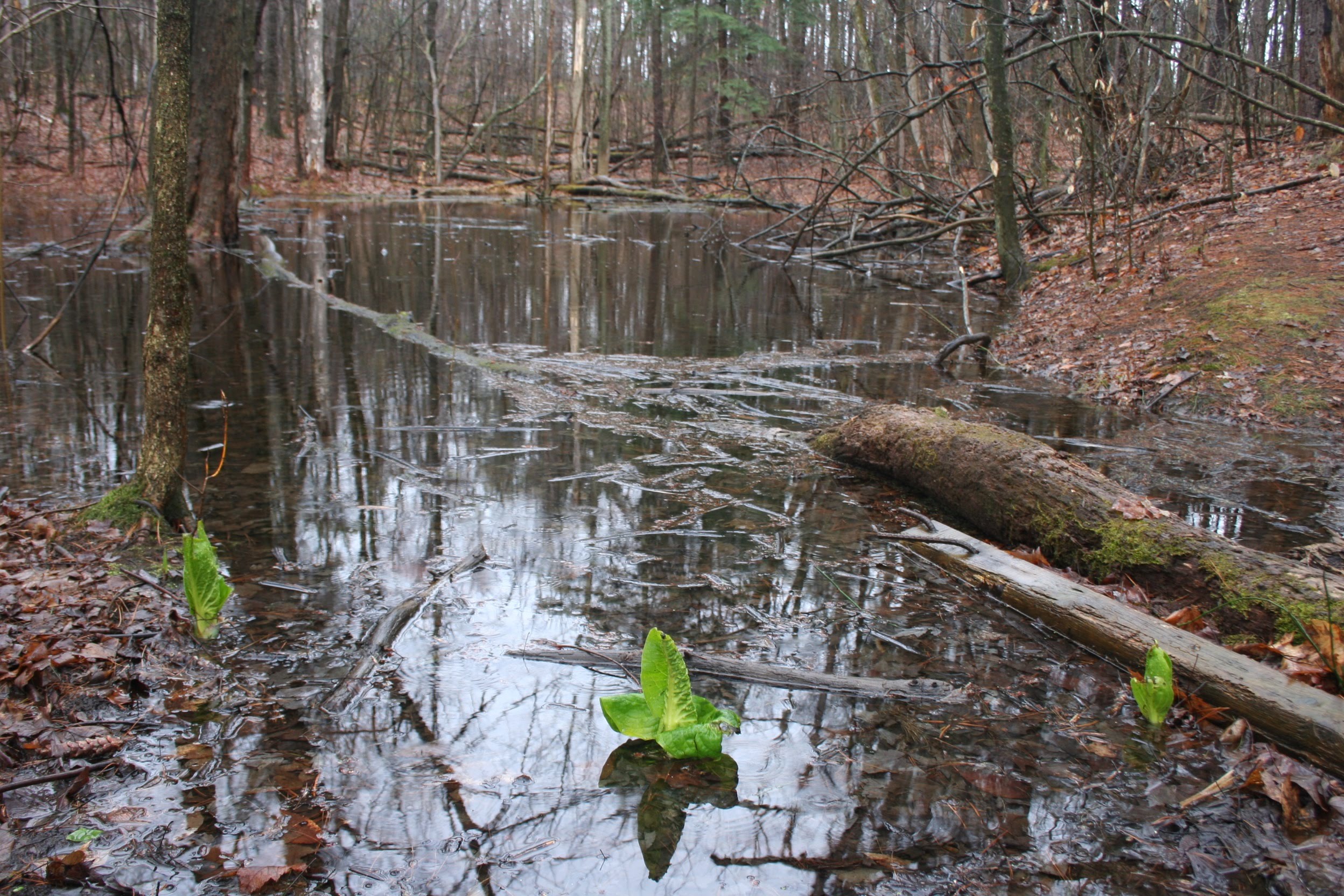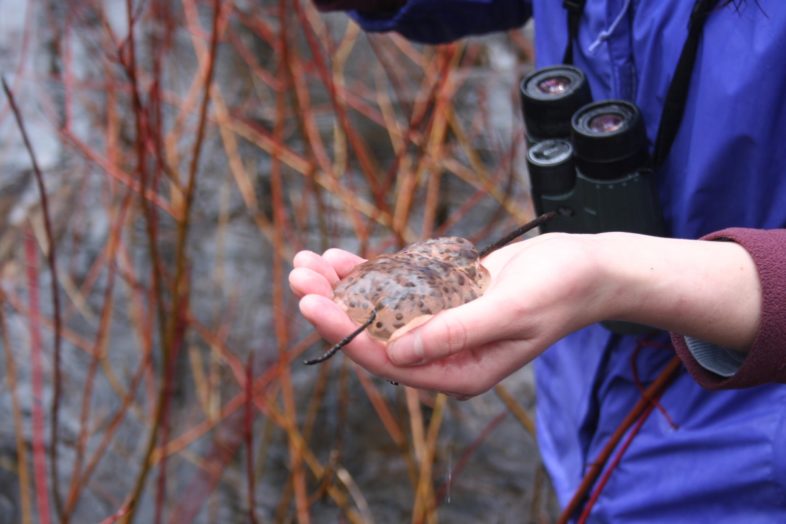VCE Awarded 2018 TechGrant

Vernal Pool Monitoring Project Coordinator, Liza Morse (second from left) leads volunteer citizen scientists in a field workshop in Montpelier, VT. Photo courtesy of Steve Faccio.
VCE’s hallmark is applying its expertise in research, mapping, and data analysis to identify pressing wildlife conservation issues and develop effective solutions. Our scientists continually seek to incorporate emerging technologies to enhance their data gathering and analysis capabilities — thanks to a generous 2018 TechGrant award from the TechFoundation, VCE’s Vernal Pool Monitoring Project will benefit from such a technological boost.

An Olympus DM-720 digital audio recorder in a waterproof case with an Olympus ME-52W noise-reducing external microphone. Photo courtesy of Liza Morse.
This year’s TechGrant provides funding to purchase equipment for 35 field monitoring sites for this innovative, statewide citizen science-based project to monitor Vermont’s vernal pools. The grant will also support the purchase of iPads to be used for field data collection at other VCE project sites.
“Cutting edge field technology has become increasingly vital to VCE’s wildlife research and monitoring efforts across the landscape,” said Chris Rimmer, VCE’s Executive Director. “Thanks to TechFoundation’s continued, generous support, we will soon be able to efficiently and accurately monitor the health of Vermont’s vulnerable vernal pools. This is a terrific advance, both for VCE and our dedicated citizen scientists.”
VCE’s overall vernal pool conservation work is comprised of four distinct projects:
- Vermont Vernal Pool Mapping Project
- North Atlantic Vernal Pool Data Cooperative
- Mercury and Vernal Pools
- Vermont Vernal Pool Monitoring Project
Why all the fuss over vernal pools? These ephemeral woodland pools provide critical habitat for a diverse assemblage of wildlife, yet they remain largely unstudied and highly at risk from the effects of climate change, airborne pollutants, and development. Having mapped the location of nearly 5,000 potential and known vernal pools across Vermont with the help of >125 volunteers, VCE has initiated the next step: an ongoing monitoring project to track the health of these critical ecosystems.

Vernal pool in Burlington, VT. Photo courtesy of David Charles.
Repeated monitoring of known pools is essential to establish a baseline of data against which to evaluate future changes, and to increase our body of knowledge about these unique, fragile wetlands.

Liza Morse carefully scooped up a spotted salamander egg mass during an April vernal pool monitoring workshop in Burlington, VT. Photo courtesy of David Charles.
The primary goal of VCE’s Vernal Pool Monitoring Program is to train and equip volunteer citizen scientists to effectively monitor breeding phenology, status, and trends of vernal pool amphibian and invertebrate populations, as well as abiotic variables such as water quality and hydroperiod. TechGrant funding will be used to purchase equipment such as automated digital audio recorders to remotely record onset of frog chorusing, noise canceling microphones, and water temperature data loggers. These devices will be placed at vernal pools in early spring and set to record during the first three hours after dark every day for one month. The data will enable VCE scientists to determine the onset of wood frog chorusing at each pool as a means to track breeding phenology.

Wood Frog moving toward a vernal pool in early spring. © K.P. McFarland
In addition to equipping the Vernal Pool Monitoring Program, TechGrant funding will be used to purchase iPads for field data collection for several other VCE field projects. Having the means to view and enter spatial data in situ would enhance the amphibian road crossing project, investigation of Bicknell’s Thrush occupancy in managed forests of Maine, and our long-running Mountain Birdwatch monitoring program.
Finally, TechGrant monies will help promote outreach of conservation outcomes by providing a new laptop and updated software to allow Karen Bourque, VCE’s new Director of Communications, to coordinate the myriad aspects of our diverse science communications portfolio.
The TechFoundation is a Cambridge, Massachusetts-based organization that delivers technology, expertise, and capital to help nonprofit organizations serve humanity. TechFoundation envisions a world where nonprofit organizations can access the same resources to serve humanity that businesses use to create wealth.
“From Canada to South America, there is a tremendous amount of conservation science that needs to be done,” said Rimmer. “The technology upgrades made possible by this TechGrant award will not only help VCE accomplish vernal pool monitoring throughout Vermont, but will enable us to communicate that and other key information to those who can implement direct, on-the-ground conservation actions across the hemisphere.” You can follow all VCE’s progress and even join our efforts as a citizen scientist by visiting the VCE web site.

